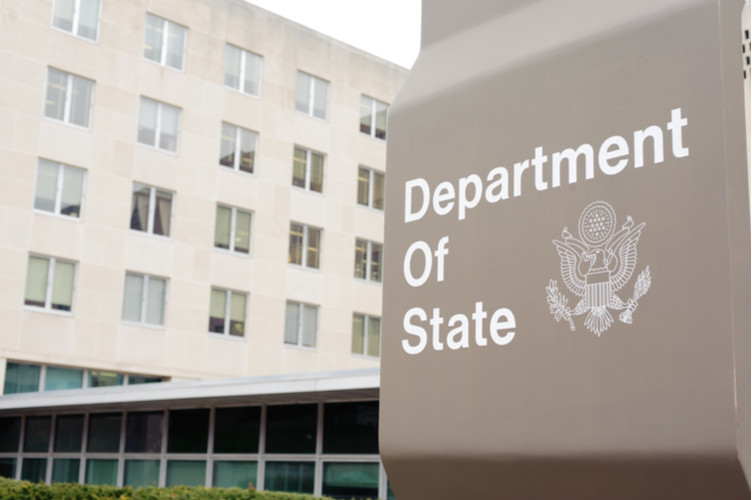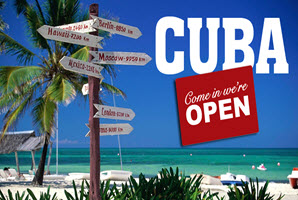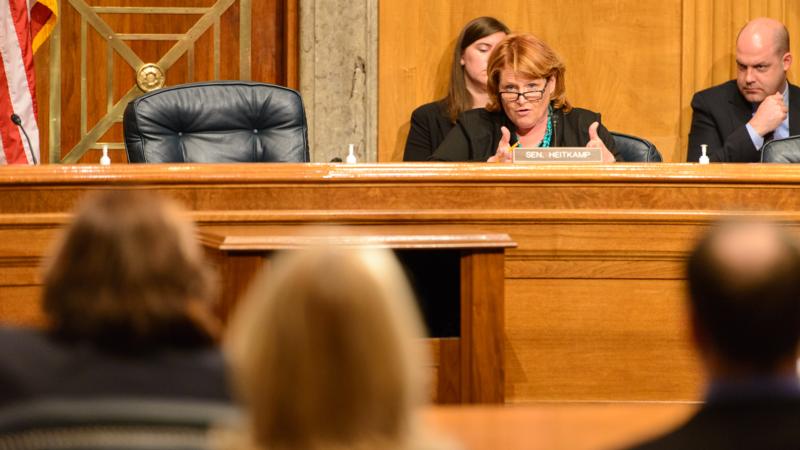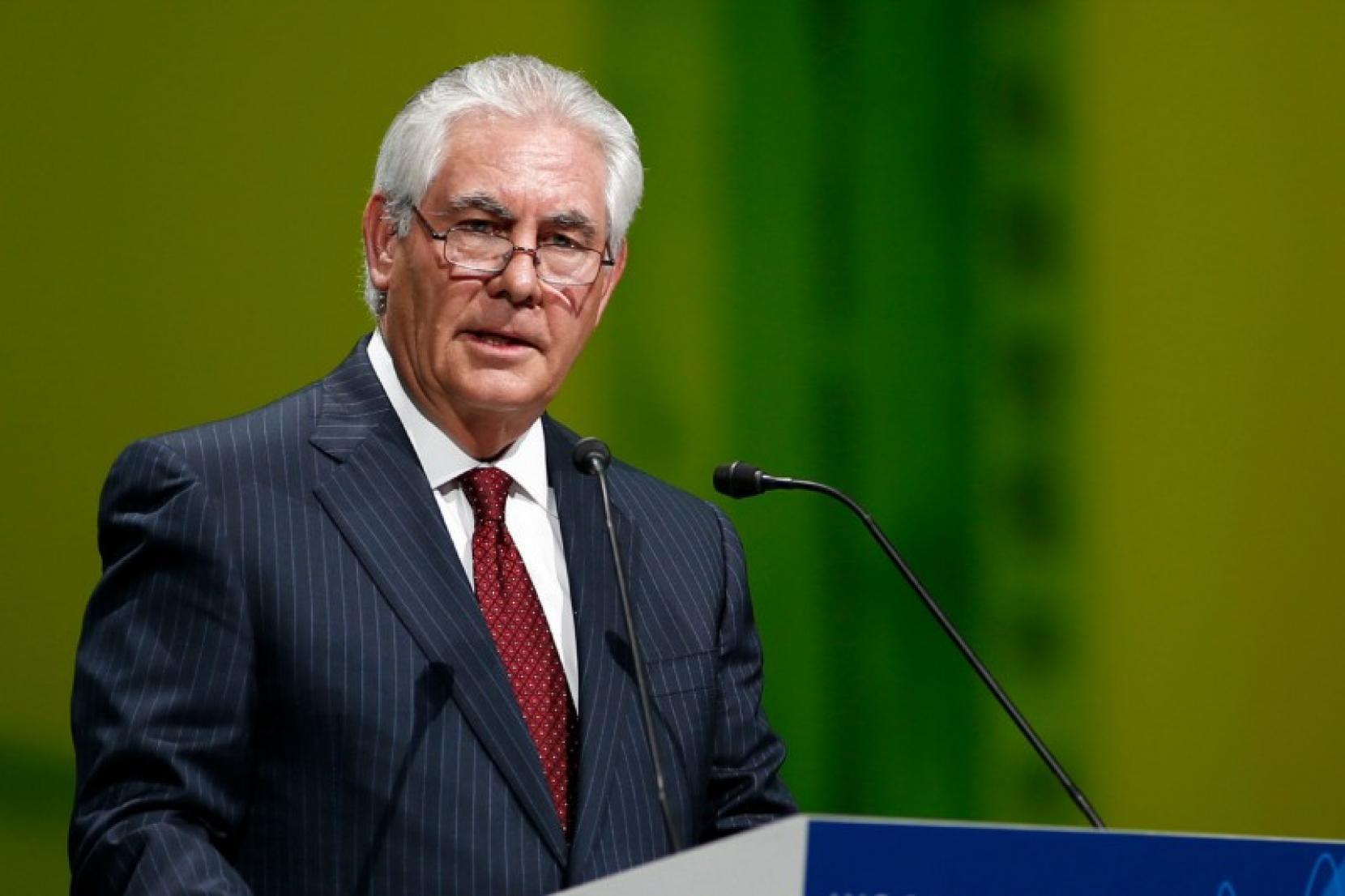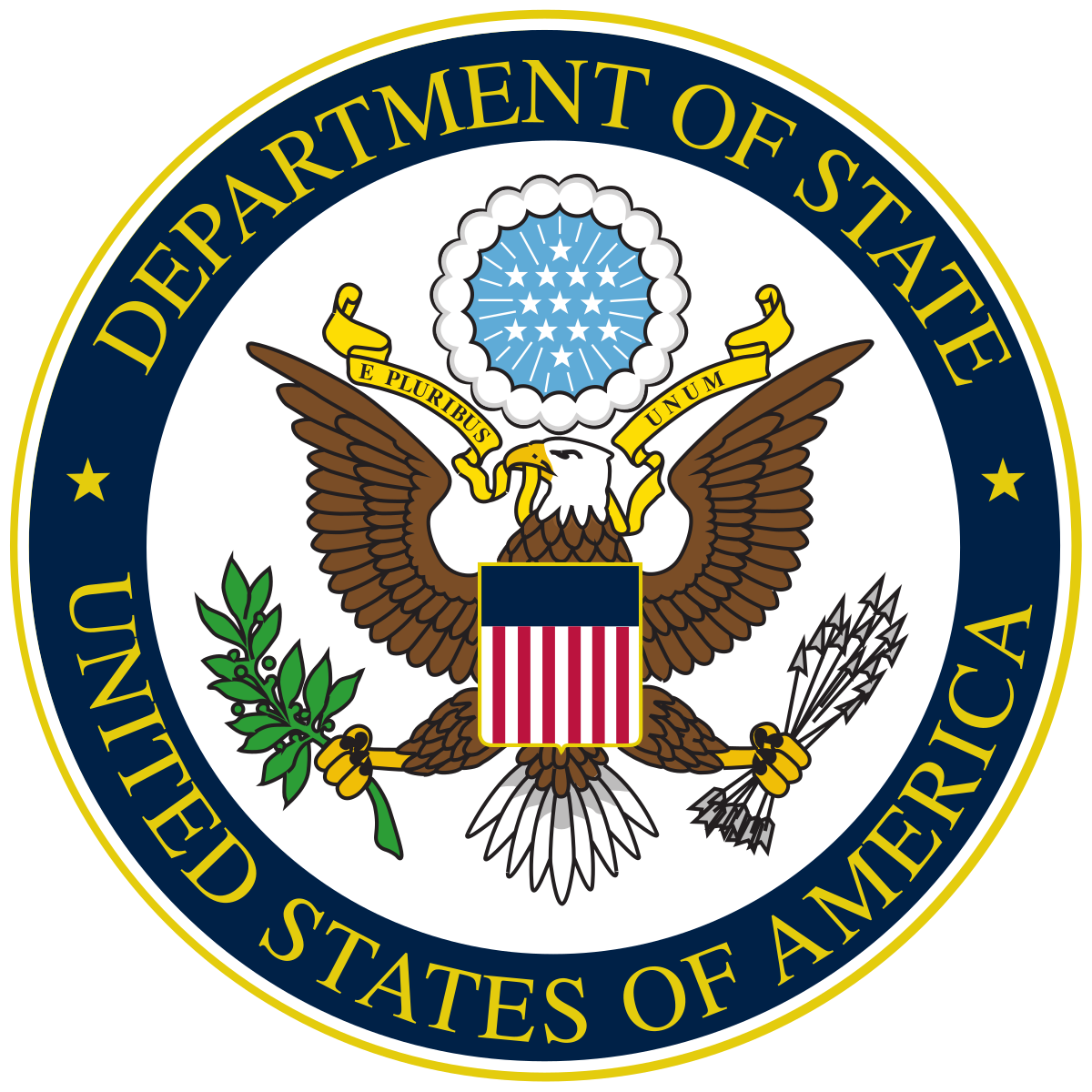LINK TO Level 3 Travel Advisory
LINK TO Description Of Travel Advisories
Special Briefing
Michelle Bernier-Toth, Bureau of Consular Affairs Acting Deputy Assistant Secretary For Overseas Citizens Services
Via Teleconference (10 January 2018)
MR GREENAN: Thank you. Good morning, everyone, and thank you all for joining us this morning for an on-the-record with Bureau of Consular Affairs Acting Deputy Assistant Secretary for Overseas Citizen Services Michelle Bernier-Toth. She’s going to talk to us this morning about the launch of the department’s new Travel Advisories. So I’ll turn it over now to Michelle.
MS BERNIER-TOTH: Thank you, Robert. Good morning, everybody, and thank you for joining us. This is, in our world, a very exciting day. As Robert said, we are launching our new travel advisory program. This is a revamping of our Consular Information Program – which, as you all know, because you follow these things, is the cornerstone of our efforts to keep U.S. citizens safe while they travel or live abroad. The purpose of the Consular Information Program does not change. It’s again, to provide information to people to make timely decisions about their travel plans and their activities while they’re overseas.
But over the years, we’ve come to recognize that sometimes our various documents were not readily understood. And frankly, I personally was tired of explaining the difference between a Travel Warning and a Travel Alert even to some of my colleagues. So about a year ago we began a very intensive analysis of our Consular Information Program and all the Travel Warnings, the Travel Alerts, how we conveyed information to the public, and we realized we needed to do a couple of things.
First, we needed to make it more accessible to people. And that’s why in November we went to a mobile-friendly design for our website. We also needed to make sure that the information was more easily understood, putting it into plain language, making it clearer why we were ranking countries, why we were citing them as a threat or a risk, and making that very obvious to people. And finally, making the information more actionable. We often got questions from people saying, “Well, I’ve read your Travel Warning, but what does it mean? What am I supposed to do?”
So in the new Travel Advisories, we’ve done away with Travel Warnings and Travel Alerts. We’ve done away with emergency and security messages – because, again, that was something that people didn’t always understand the difference – and we have gone to a Travel Advisory for every country, including Antarctica. And within that Travel Advisory, we have gone to a four-level ranking system, starting with a Level 1, which is “Exercise normal precautions.” Level 2 is “Exercise increased caution,” Level 3 is “Reconsider travel,” and level four is “Do not travel.”
And for each country that has a Level 2 or above, we will specify what we think those risks or threats are, why is it that we’re telling people to consider – reconsider travel or to exercise caution or not to travel at all. And those risks and conditions and circumstances are going to be very clearly spelled out with icons – C for crime, T for terrorism, U for civil unrest, H for health issues, N for natural disasters, E for time-limited events such as elections or major sporting events, and O for other, which is our catch-all for the things that don’t fit into those other categories. So it’s going to be very obvious.
We have interactive maps that you can look at and sort of see where things are. The new Travel Advisories will continue to provide what we used to call the country-specific information about things like entry requirements, special circumstances, health issues perhaps, road safety issues and things like that. That’s still all there, but again, it’s laid out in a format that is much more readily accessible, much more easily understandable, and I think far more actionable than our old Travel Warnings, Travel Alerts, and other documents.
So with that, I will stop and take questions.
MR GREENAN: Thank you very much. We’ll now go to our first question.
OPERATOR: And ladies and gentlemen, just a quick reminder, if you do have a question, please press *1 at any time. And we’ll go to Arshad Mohammed with Reuters. Please, go ahead.
QUESTION: Good morning. Thank you very much for doing this and for doing it on the record. I have looked quickly at the excellent and interesting interactive map on your website. Two questions, or three questions. One, do you have anywhere on the website a list that segregates countries that are given a ranking of four – “do not travel” – ranked three, two and one, so that we can see all of those as a group? If you don’t have that, I, just quickly looking at it, have counted about 10 countries that I see that are “do not travel”: Afghanistan, Central African Republic, Iraq, Iran, Libya, Mali, North Korea, Somalia, South Sudan, Syria, and Yemen. Have I gotten all the countries that you advised U.S. citizens not to travel with – not to travel to, or have I missed any?
And then finally, can you explain to us whether – it’s my memory that the U.S. Government does not have the ability to bar U.S. citizens from traveling to countries, but can you please explain to me whether that is correct or not, whether you can, for example, say that a U.S. passport is not valid for travel to country X or Y or Z? Although I suppose the – an individual could use another passport or try to travel to that country without a passport.
MS BERNIER-TOTH: Those are excellent questions. No, we don’t have a space – a place where we separate countries by their – order of their ranking. That’s something that’s of interest, I think. I didn’t catch all the countries that you listed as a Level 4, “Do not travel.” It sounds pretty good. Basically, these are the countries where, under the previous Travel Warnings, we already recommended people not to go to them, places like Somalia, places like Afghanistan, Syria, Iraq. So I’d have to go back and check that list.
But essentially how we assess the threat level in a country hasn’t changed. There’s still a collaborative process that involves our security experts, the intel community, host governments, our embassies and consulates, the information that we – they feed into us that we then assess and determine how we are going to rank a country. That really hasn’t changed. It’s how we describe those conditions and set those levels that has changed.
And you’re absolutely right, we cannot prevent people from traveling to a country. The “do not travel” is our recommendation. But if you read through sort of what the language says behind that, you recognize that, yes, we can’t prevent you from traveling. The exception, though, as I’m sure many of you have – all of you know is that we do have a general travel restriction on the use of a U.S. passport for North Korea. That means that if you – American citizens who wish to travel to North Korea must apply for a one-time waiver and provide justification as to why they need to go, and there’s certain criteria that would allow us then to grant those waivers. That is the only country where we specifically say you cannot use your U.S. passport to travel to, North Korea. And as you say, people could use other documents. That would be their choice. But we want to warn them that there are risks involved in traveling to North Korea, and we have made that clear through the GTR.
MR GREENAN: Okay, thank you. Next question, please.
OPERATOR: And we’ll go to Nora Gamez with The Miami Herald. Please, go ahead.
QUESTION: Hi. Good morning, and thank you for doing this. I just checked the Cuba Travel Warning. The previous warning was “do not travel,” and now Cuba is a Level 3. So have the circumstances in Cuba changed? Why the change in classification?
MS BERNIER-TOTH: Yeah. Again, as we were putting all this together, we did a very careful assessment. We talked to all of our experts, and this is where we came out on Cuba. Whenever we – as you all know, we have significantly reduced our staffing at our embassy in Havana. Whenever we do that, traditionally we have always issued a Travel Warning, and that has not changed. This is reflected now in the Level 3 ranking that we’ve given to Cuba.
MR GREENAN: All right, thank you. Next question, please.
OPERATOR: And we’ll go to Laura Koran with CNN. Please, go ahead.
QUESTION: Hi, thanks so much for doing the call and again for making it on the record. Can you tell me what sort of communications the department has had with foreign governments in advance of this release to advise them on their tier ranking, particularly at those upper levels, tiers three and four? And even though you and your colleagues have said that these rankings are based on security conditions, are you concerned about any pushback or retaliation from countries that don’t agree with their rankings?
MS BERNIER-TOTH: An excellent question. Yes. Where we have given our – we gave our embassies authority to provide their host governments with an advance copy of the final Travel Advisory for their country if they thought that that was important to the host government. By and large, I think there have been no surprises. Again, a country that was previously a “do not travel” sort of ranking is not going to be surprised that we’ve put them at a Level 4. But again, it’s – we did brief various host governments in advance. They – we do not give host foreign governments the ability to change the language. These are not political documents; these are simply based on our assessment of the security situation and what we need to tell U.S. citizens who might be traveling or living in that country.
MR GREENAN: Thank you. Next question, please.
OPERATOR: And we’ll go to Josh Lederman with the Associated Press. Please, go ahead.
QUESTION: Hey, thanks for doing this, and like Arshad said, thanks for doing it on the record. I wasn’t sure I understood the answer to the earlier question on the – on the – Cuba. Regardless of sort of how one previous system transits to the next, I mean, the content of it – like, before you were telling Americans don’t go to Cuba; now you’re putting them at a level where you’re saying something short of that. So can you just be real specific: Have you changed your assessment since the most recent Travel Warning about Cuba about the safety of traveling there? Is this less of a threat level than it was in the previous iteration? Thanks.
MS BERNIER-TOTH: So this was – again, we routinely review our previous Travel Warnings. We will continue to review our Travel Advisories on a regular basis, either because – the Levels 1 and 2 will be reviewed every year, if not more frequently, depending on circumstances. Levels 3 and 4 we review every six months just as we did Travel Warnings. In the process of that review, we will look very carefully and we wanted to make sure that we were being consistent across the globe as to how we were assessing and ranking countries, and I think that’s where we had that change in Cuba. It was looking at it very closely to say what is the situation on the ground right now and how are we going to describe that.
The fact of the matter, though, too, is that we have a very small footprint in our embassy in Havana. We have very, very limited consular resources and our ability to help people in an emergency is extremely limited. So that’s another factor that plays into it.
MR GREENAN: Thank you. Next question, please.
OPERATOR: And we’ll go to Dave Clark with AFP. Please, go ahead.
QUESTION: Hi. A practical question for the journalists on the call. In the future, if following a review or following an incident you change a country’s ranking up or down, will you issue a statement to that effect to us or will we just have to check this website every day?
MS BERNIER-TOTH: Certain aspects of our information program don’t change. When we – when we change – and I should note first, I mentioned earlier the security and emergency messages. We’re doing away with those as well. Instead, we will be issuing alerts. They might be a demonstration alert, a hurricane alert, a terrorist incident alert, but they will be alerts. Those will continue to go out through our Smart Traveler Enrollment Program as well as be posted to the website. So if you’re enrolled in our Smart Traveler Enrollment Program, you are going to get those messages, as well as updates and changes to the Travel Advisories.
MR GREENAN: Thank you, and we’ll go to the next question, please.
OPERATOR: That will be Mark Laiosa with WBAI FM. Please, go ahead.
QUESTION: Good morning. Thank you for taking this on the record. Will the real-time updates for critical areas be posted simultaneously, mobile and online? And also – follow-up – how often will you assess the countries’ statuses?
MS BERNIER-TOTH: Okay. Thank you for that. Yes. I mean, the – when we update to the website, it’s updated – we push out over the STEP program as well. That sort of happens at the same time. And again, as I mentioned earlier, Level 1 and 2 countries, we review those every year, at least on an annual basis, unless something happens that prompts us to review it more frequently. There might be a change in circumstances, there might be a new threat, something like that that would cause us to re-evaluate and reassess more frequently. Levels 3 and 4, we continue to review those on schedule every six months, again, unless something happens that prompts us to do it more frequently.
MR GREENAN: Okay. Take the next question, please.
OPERATOR: That will be Dan Peltier with Skift. Please, go ahead.
QUESTION: Hi, thanks. So I know you’ve laid out your case a few minutes ago about why you’re changing the system and doing away with warnings, but just from my point of view and a lot of people I know, I mean, when a warning was issued in the past, that was very explicit that it’s probably not safe to travel somewhere, whereas an advisory might not be safe to travel to some parts of the country but other parts are perfectly safe. So I’m just wondering if you’re kind of – some people it might be more complicated, and I know you’re trying to make it more simple, but seems like you’re stirring the pot a little bit more, I don’t know, in terms of throwing out the word “warning.” If there was any – if there’s any concern about that still that’s lingering, that people might have a hard time grasping this at first.
MS BERNIER-TOTH: I think there might be a bit of a learning curve, but I think if you look at the actual advisories – and those countries we’ll say “do not travel,” it’s in red. It’s Level 4. It’s pretty obvious that these are countries that have a high threat level that we want people to be aware of. And this – actually, we’ve looked at other – how other countries handle their travel information as well, and this tracks to a degree with them, although in ours I think we have a little bit more detail in terms of what those risk or threat conditions are that are very clearly indicated. So I think people will find it easier to understand than our old Travel Warnings, and again, people often did not understand the difference between a Travel Alert and a Travel Warning, and we shouldn’t need to spend more time explaining the difference between those two documents than we do explaining what the threat actually is.
MR GREENAN: Thank you. We’ll take the next question, please.
OPERATOR: We’ll go to Nick Wadhams with Bloomberg. Please, go ahead.
QUESTION: Hi, thanks very much. Just two questions. One, can you explain why China I guess is the only country on the map so far with the – its advisory status being pending?
And then also, is there any correlation between the advisories you issue here and the change in status for countries and the precautions that will be taken by embassy and consular staff, or do those staff sort of judge security risks or are they advised about security risks based on a different system or protocol?
MS BERNIER-TOTH: Great questions. China is not up simply because of technical issues. It should be up shortly. It’s going to be a Level 2, I can tell you that.
And as far as what advice is given to embassy staff, our entire Consular Information Program is predicated on what we call the “no double standard” policy, and that’s if we have threat information that is – it’s credible, it’s specific, and there’s something we can’t mitigate against, and we provide that information and recommendations on actions to our embassy personnel, we must provide that to the American community. And so that – when you see something that goes up on a Travel Advisory, it’s because we have told our own people very much the same. And as you read through some of the advisories, you’ll see that very clearly spelled out. For example, Mexico – I’m thinking of a couple of them where it’s very specific as to what the restrictions are on U.S. embassy personnel in that country. Again, we can’t tell private Americans what they can – should or should not – what they – we can’t prevent them from doing things, but we want them to know what restrictions we’ve imposed upon ourselves so that if they choose to, they can follow the same guidance.
MR GREENAN: Okay, thank you very much. We’ll take the next question, please.
OPERATOR: And we’ll go to Tomas Regalado with Radio TV Marti. Please, go ahead.
QUESTION: Good morning and thank you very much for taking this call. I have a quick question regarding the Cuba change. My questions are the following: There – I see that there is here on the change it says, obviously, review the crime and safety and also avoid Nacional Hotel – Nacional and Hotel Capri.
My questions are the following: When you go to the travel – the new Travel Advisories, you have C for crime, T for terrorism, CU for civil unrest. The Secretary of State has just asked for a whole new investigation as well as what occurred yesterday with the Senate Foreign Relations. Wouldn’t this be considered, what happened to the diplomats, as a terrorist attack as well? And why wouldn’t T be on there? As well as why the change if diplomats were hurt in this – in these attacks, in these sonic attacks?
MS BERNIER-TOTH: Yeah. I should be clear: There is no change in our assessment of what is going on in Cuba, and I think – to your point, I think there is an – looking at what – there’s an investigation into what happened. We don’t know what happened, so we’re not going to speculate before we have final answers.
MR GREENAN: Okay. Thank you. We’ll take the next question, please.
OPERATOR: We’ll go to Bart Jansen with USA Today. Please, go ahead.
QUESTION: Hello, thanks for holding the call. I wondered when might have been the last of this kind of a major overhaul for this online service.
MS BERNIER-TOTH: This is the first major overhaul in a very long time. I don’t even know when the last one was. We did do some tinkering about 10 years ago with a terminology that we used. As some of you might remember, we used to issue Public Announcements. We did away with those in favor of Travel Alerts. We changed some of our security messaging criteria. But this is the – really the biggest overhaul that we’ve done in a very, very long time.
MR GREENAN: Okay. Thank you. We’ll take the next question, please.
OPERATOR: And we’ll go to Arshad Mohammed with Reuters. Please, go ahead.
QUESTION: Three quick things: Am I correct in understanding that you will continue to issue publicly new Travel Alerts when you make a new decision for authorized or ordered departure at a U.S. embassy?
Second, I still don’t understand – and perhaps it’s that I’m obtuse – the answer on Cuba. I think on October the 3rd, you said do not travel to Cuba, and therefore I don’t understand why you are now saying – why you – why they’re not now in Category 4, particularly since you said that, if I understood you correctly, there had been no changes, that those countries where you had said do not travel previously are now – are now Category 4.
MS BERNIER-TOTH: Thank you for that. So on the authorized and ordered departure, again, our policy does not change there. When an embassy goes to authorized or ordered departure, that automatically puts it into either the Level 3 or Level 4 rankings, which would be the equivalent of an old Travel Warning if it’s not already there. And we will make that information public through the Consular Information Program, through an update to the Travel Advisory and then again – and then through putting out an alert through the STEP program.
On Cuba, I would note if you read further into what the different definitions or explanations of the different levels are, Level 3 is reconsidered travel, but the message behind that is avoid travel due to serious risks. So I think that does not change from where we were on Cuba previously.
QUESTION: Thank you.
MR GREENAN: We have time for one last question.
OPERATOR: And that’ll be Jose Diaz with Reforma. Please, go ahead.
QUESTION: Hello?
OPERATOR: Please, go ahead with your question.
QUESTION: Perfect. Yes, my question is regarding Mexico. I see very detailed information on several regions in Mexico. It goes state by state and then very detailed information. Is Mexico a different case than other countries? I see different levels of warning for each of the different states of Mexico.
MS BERNIER-TOTH: That’s an excellent question. Thank you. This gets back to a point I made earlier about the no double standards. The differentiation between states that you see from Mexico relates to the restrictions that our mission in Mexico imposes upon U.S. Government personnel in the country: where they can go, where they’re not allowed to go, where they can go with very specific security precautions.
We wanted to make sure that the U.S. traveling public was aware of all those restrictions and rules that we impose upon ourself in Mexico. And the Mexico Travel Warning, the previous Travel Warning, had that information. I think it’s much more clearly spelled out here in the new Travel Advisory.
MR GREENAN: Thank you very much. Thank you to everyone for joining us this morning. And a special thanks to Acting Deputy Assistant Secretary for Overseas Citizens Services Michelle Bernier-Toth. This (inaudible) call was on-the-record, so we – hopefully we’ll see some reporting. And we look forward to another call with you in the future.
Thanks so much.
MS BERNIER-TOTH: Thank you.


